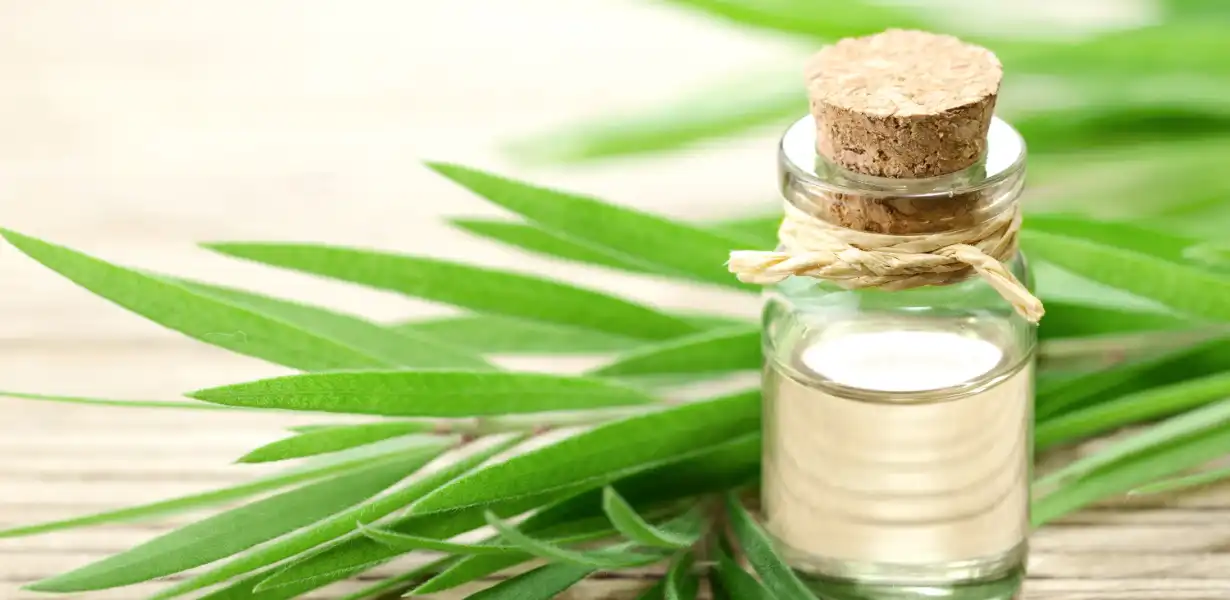
Tea tree oil has quietly established itself as a powerhouse in the world of natural remedies. This essential oil, derived from the leaves of the Melaleuca alternifolia tree native to Australia, packs a punch in a tiny bottle. From banishing acne to soothing irritated skin, tea tree oil’s versatility is unmatched. In this comprehensive guide, we delve into the myriad benefits and uses of tea tree oil, especially for acne-prone skin.
Understanding Tea Tree Oil
What is Tea Tree Oil?
Tea tree oil, scientifically known as Melaleuca alternifolia oil, is an essential oil obtained through steam distillation of the leaves of the tea tree. It boasts a fresh, medicinal scent and a clear to pale yellow appearance. Its remarkable properties stem from its rich composition of terpinen-4-ol, a potent antimicrobial compound.
A Natural Antiseptic
Tea tree oil has been valued for centuries by indigenous Australians for its antiseptic properties. It’s like Mother Nature’s disinfectant. Its ability to kill various strains of bacteria, viruses, and fungi makes it a must-have in your natural medicine cabinet.
Tea Tree Oil for Acne: Your Skin’s Best Friend
Banishing Acne with Tea Tree Oil
Acne is a common skin woe, but tea tree oil offers a natural remedy that rivals commercial treatments. Its antimicrobial and anti-inflammatory properties make it a formidable opponent against acne-causing bacteria. When applied topically, it can help reduce the severity and frequency of breakouts.
How to Use Tea Tree Oil for Acne
Dilution is Key: Pure tea tree oil is potent, so dilute it with a carrier oil like jojoba or coconut oil before applying to the skin. A 5% dilution is generally recommended.
Spot Treatment: Apply diluted tea tree oil directly to blemishes with a cotton swab for targeted treatment.
Cleansing Power: Add a few drops to your daily cleanser for a refreshing and acne-fighting boost.
Face Masks: Incorporate it into DIY face masks with ingredients like honey or clay for a spa-worthy treatment.
Caution: Always do a patch test before using tea tree oil on your face to ensure you don’t have an adverse reaction.
Beyond Acne: Versatile Uses of Tea Tree Oil
Soothing Skin Irritations
Tea tree oil’s anti-inflammatory properties make it effective for soothing various skin irritations, including insect bites, rashes, and sunburns. Mix a few drops with aloe vera gel for a soothing homemade remedy.
Dandruff and Scalp Health
A flaky scalp can be embarrassing, but tea tree oil can come to the rescue. Add a few drops to your shampoo to help alleviate dandruff and maintain a healthy scalp.
Nail Care
Tea tree oil’s antifungal properties make it ideal for nail care. Apply a diluted solution to nails affected by fungal infections or use it as a preventive measure.
Natural Deodorant
Tired of commercial deodorants with harsh chemicals? Tea tree oil’s antimicrobial properties can help combat odor-causing bacteria. Mix it with coconut oil and baking soda for a DIY deodorant.
Household Cleaner
Tea tree oil can also shine as a natural household cleaner. Its antibacterial properties make it effective against germs. Mix it with water and vinegar for a refreshing all-purpose cleaner.
Final Words
Incorporating tea tree oil into your skincare routine is a natural and effective way to combat acne and a wide array of skin issues. This versatile essential oil offers a holistic approach to wellness, promoting both physical and mental well-being. Remember, a little goes a long way, and always prioritize safety by properly diluting it before use.
Commonly Asked Questions
Q1. Can I use tea tree oil directly on my skin without dilution?
A1. While some individuals can tolerate undiluted tea tree oil, it’s generally recommended to dilute it with a carrier oil to prevent skin irritation. Start with a 5% dilution and do a patch test first.
Q2. How long does it take for tea tree oil to work on acne?
A2. The results vary from person to person. Some may see improvement within a few days, while for others, it may take several weeks of consistent use.
Q3. Is tea tree oil safe for sensitive skin?
A3. Tea tree oil can be harsh on sensitive skin. If you have sensitive skin, always dilute it and consider doing a patch test first.
Q4. Can I ingest tea tree oil for its health benefits?
A4. No, ingesting tea tree oil can be toxic. It should only be used topically and never swallowed.
Q5. Are there any side effects of using tea tree oil?
A5. Possible side effects include skin irritation, itching, or redness. If you experience any adverse reactions, discontinue use and consult a dermatologist.




